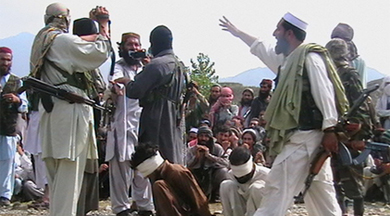Militant
Politics in Pakistan
 |
Leveraging novel
data collection efforts in Pakistan, I have explored how various
individual-level characteristics infleunce people's support for
militant organizations and political violence: socioeconomic status,
religiosity, and democratic values. We have also explored the causal
effects of relative deprivation and perceived violence on support for
militant groups as well as how economic shocks affect civic engagement.
|
Please
find links to his publications in this
research area
below:Fair,
C. Christine, Rebecca Littman, Neil Malhotra, and Jacob Shapiro. 2018.
"Relative Poverty, Percevied Violence, and Support for Militant
Politics: Evidence from Pakistan." Political Science Research and Methods. 6(1): 57-81 Fair, C. Christine, Neil Malhotra, and Jacob
Shapiro. 2014. “Democratic
Values and Support for Militancy: Evidence from a National Survey of
Pakistan." Journal of Conflict
Resolution. 58(5): 743-770.
Blair, Graeme, Christine Fair, Neil
Malhotra, and Jacob Shapiro. 2013.
“Poverty and Support for Militant Politics: Evidence from Pakistan." American Journal of Political Science.
57(1): 30-48.
Fair, C. Christine, Neil Malhotra, and Jacob
Shapiro. 2012. “Faith or
Doctrine? Religion and Support for Political Violence in Pakistan." Public Opinion Quarterly. 76(4):
688-720.
Fair, C. Christine, Neil Malhotra, and Jacob
N. Shapiro. 2010. “Islam,
Militancy and Politics in Pakistan: Insights from a National Sample." Terrorism and Political Violence. 22(4):
495-521.
|






